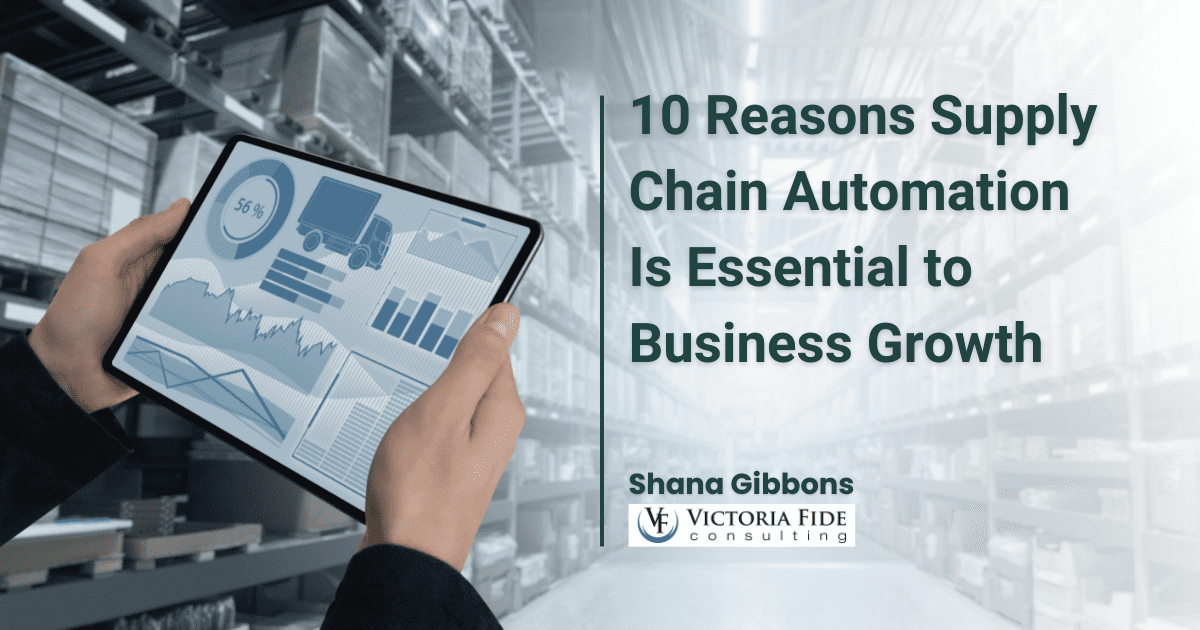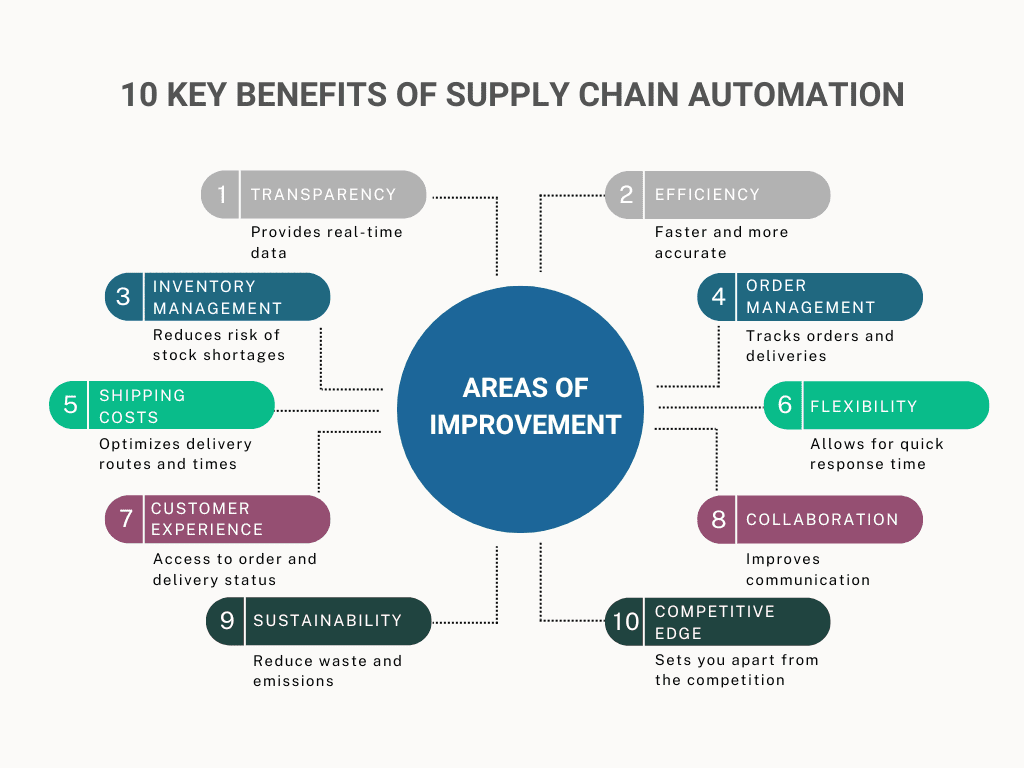
Table of Contents
What is Supply Chain Automation?
Supply chain automation refers to the use of technology to automate various elements of the supply chain, including procurement, production, logistics, and distribution. Automation helps to streamline these processes, reducing the time and resources required to manage them manually. This leads to increased efficiency, accuracy, and cost-effectiveness in supply chain operations, making it an essential aspect of business growth.
10 Key Benefits of Supply Chain Automation
- Improved visibility and transparency: Supply chain automation refers to the use of technology to automate various elements of the supply chain, including procurement, production, logistics, and distribution. Automation helps to streamline these processes, reducing the time and resources required to manage them manually. This leads to increased efficiency, accuracy, and cost-effectiveness in supply chain operations, making it an essential aspect of business growth.
- Increased efficiency: Automated processes are faster and more accurate than manual processes, leading to heightened efficiency in supply chain operations.
- Better inventory management: Automation enables organizations to optimize inventory levels, reducing the risk of stock shortages and excess inventory.
- Improved order management: Automated order management systems make it easier to track orders and deliveries, as well as reducing the risk of errors.
- Reduced shipping costs: Automated transportation management systems can help organizations to optimize delivery routes, reducing transportation costs and improving delivery times.
- Greater flexibility: Automated supply chain processes make it easier for organizations to respond to changes in demand and supply, allowing them to adapt their operations more quickly and effectively to meet changing market conditions.
- Enhanced customer experience: Automated supply chain processes can help organizations to provide better customer service, including real-time information about order status and delivery times.
- More effective collaboration: Automated supply chain systems enable organizations to collaborate more effectively with suppliers, manufacturers, distributors, and retailers, helping to improve communication and coordination across the supply chain.
- Enhanced sustainability: Automated supply chain processes can help organizations to reduce waste, minimize emissions, and improve energy efficiency, leading to a more sustainable supply chain.
- Increased competitive edge: By improving efficiency, reducing costs, and increasing customer satisfaction, automation can help organizations to increase their competitiveness in the market.

How To Get Started with Supply Chain Automation
How can companies get started with supply chain automation? Here are three examples:
1. Automate procurement processes
One of the first areas that companies can automate is procurement. Automated procurement systems can help organizations to streamline the procurement process, reducing the time and resources required to manage it manually. This includes automating tasks such as supplier selection, purchase order generation, and vendor invoice processing.
2. Automate production processes
Another area that companies can automate is production. Automated production systems can help organizations optimize production processes, reducing the time and resources required to manage them manually. This includes automating tasks such as production scheduling, resource planning, manufacturing execution and quality control.
3. Automate logistics and distribution processes
Finally, organizations can automate logistics and distribution processes, including transportation management, warehouse management, and delivery tracking. Automated logistics and distribution systems can help organizations optimize these processes, reducing transportation costs and improving delivery times.
Supply Chain Automation is Essential to Business Growth
In conclusion, supply chain automation is essential to business growth in today’s fast-paced and highly competitive business environment. By automating various elements of the supply chain, organizations can achieve greater efficiency, accuracy, and cost-effectiveness in their operations, increasing their competitiveness in the market and meeting the demands of an ever-changing business environment.
If you are considering implementing a transformational technology project to drive business growth, Victoria Fide can help. We guide digital transformation projects to success by focusing on people and business goals first and technology second. Contact us today at info@victoriafide.com to find out more.
About the Author
Shana Gibbons is the Warehousing and Supply Chain Business Process Consultant. She has over 16 years of experience working in the Supply Chain and Warehousing space, and she is deeply passionate about building relationships with her clients and teams in order to help them navigate through their Warehouse and Supply Chain ups and downs.

1 comment on “10 Reasons Supply Chain Automation is Essential to Business Growth”